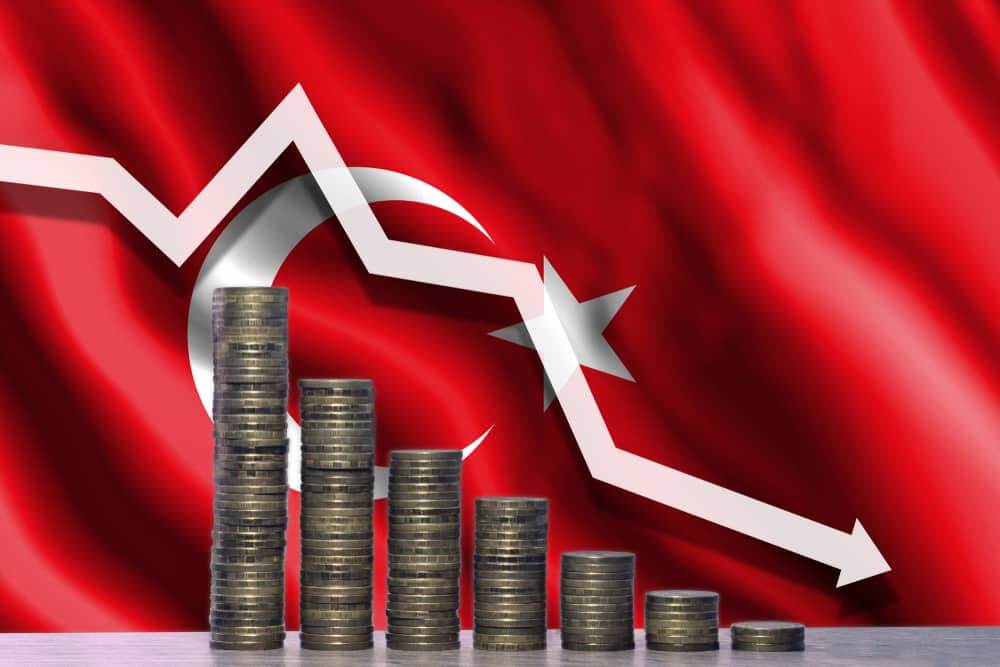
Turkey Faces the Risk of Another Currency Crisis, as Inflation Jumps
Economic News: This week, Turkey’s lira slipped to its weakest level since May when it hit a record low in early May. This was after June’s inflation was reported at 12.6% – which overthrew economists’ expectations.
According to analysts, shrinking foreign reserves, inflation, and currency devaluation show no turnaround signs.
Turkey’s lira is still “overvalued” despite its current weakness. Can Selcuki cited rising inflation and the government’s death of reserves. Can Selcuki is the managing director – Istanbul Economics Research.
June’s inflation rose from 11.4% in May, which was the highest point since August 2019. It grew steadily from 8.6% last October.
The increasing foreign-dominated debt looks like the lira will depreciate further in the coming months if the fiscal policy does not intervene, Selcuki said.
Erdogan’s stance
Economists broadly agree that rising inflation requires higher interest rates. However, Turkish President Erdogan disagrees and believes in the economically unorthodox view that increasing rates are inflationary.
He prefers cutting interest rates to boost growth and spending after the coronavirus pandemic’s effects hit Turkey. Tourism is the most affected, being Turkey’s major employer and foreign currency provider.
Turkey’s central bank maintained its benchmark rate at 8.25% in June. It had consecutively reduced the rate nine times from a high of 24% in the first half of 2019
However, most investors think Erdogan influences the central bank.
Also, Selcuki did not rule out the possibility of another currency crisis in Turkey. The lira hit its historical low in May at 7.269 per dollar.
The dollar rose by 15.36% against the lira year to date.
Earlier this month, Moody’s report cited “fresh market concerns” over Turkey’s economic policy and forecast. The report cited an economic contraction of 5% in 2020 and a downturn in the first half of the year.
Then there was a relatively slow recovery, according to Turkish standards, of about 3.5% in 2021 due to various structural restraints.
The IMF also sees Turkey’s economy shrinking by 5% this year after it expanded by only 0.9% in 2019.
The central bank’s interventions to support the lira have drained the country’s reserves. According to Fitch Ratings, gross reserves, including gold, minus swaps, dropped by $33 billion by the end of June from $87 billion by the end of 2019.
Turkey is still in troubled waters.
According to the Fitch report, Turkey’s main credit weakness remains external financing risks. Since February, the drop in foreign exchange (FX) reserves added to the weak monetary policy credibility.
Negative real interest rates increase the risks of further external pressures.
The agency thinks such interventions will come to an end soon. However, given the low reserves, they do not anticipate further massive net FX interventions from the central bank.
The agency also believes the interest rate easing cycle is coming to an end.
Fitch’s analysts added that renewed government debt issuance would have a stabilizing effect.
However, Fitch warned against the unpredictable Turkish president, who frequently voiced his disdain for higher rates. According to Fitch, they still see the risk of further rate cuts contributing to new external pressure, as much as the monetary policy committee held interest rates at 8.25% last week.
According to Selcuki from the Istanbul Economics Research, the slow demand and low energy prices amid the coronavirus pandemic have helped keep inflation in check.
However, they also observe that it seems to be over now. Selcuki said we could be at the beginning of rising inflation and doesn’t agree with statements that Turkey’s economy has bottomed out yet.




